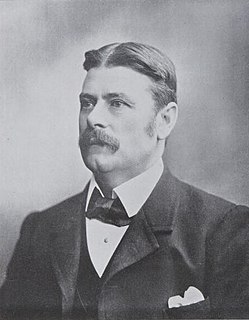Related Research Articles

The Legislative Council, or upper house, is one of the two chambers of the Parliament of South Australia. Its central purpose is to act as a house of review for legislation passed through the lower house, the House of Assembly. It sits in Parliament House in the state capital, Adelaide.

The House of Assembly, or lower house, is one of the two chambers of the Parliament of South Australia. The other is the Legislative Council. It sits in Parliament House in the state capital, Adelaide.

The Government of South Australia, also referred to as the South Australian Government, SA Government or more formally, His Majesty’s Government, is the Australian state democratic administrative authority of South Australia. It is modelled on the Westminster system of government, which is governed by an elected parliament.

The Parliament of South Australia is the bicameral legislature of the Australian state of South Australia. It consists of the 47-seat House of Assembly and the 22-seat Legislative Council. General elections are held every 4 years, with all of the lower house and half of the upper house filled at each election. It follows a Westminster system of parliamentary government with the executive branch required to both sit in parliament and hold the confidence of the House of Assembly. The parliament is based at Parliament House on North Terrace in the state capital of Adelaide.

State elections were held in South Australia on 10 March 1973. All 47 seats in the South Australian House of Assembly were up for election. The incumbent Australian Labor Party led by Premier of South Australia Don Dunstan won a second term in government, defeating the Liberal and Country League led by Leader of the Opposition Bruce Eastick.

Colonial elections were held in South Australia from 9 April to 23 April 1890. All 54 seats in the South Australian House of Assembly were up for election.

Colonial elections were held in South Australia on 25 April 1896, excepting the Northern Territory, which voted on 2 May. All 54 seats in the South Australian House of Assembly were up for election. The incumbent liberal government led by Premier of South Australia Charles Kingston in an informal coalition with the United Labor Party (ULP) led by John McPherson defeated the conservative opposition. Each district elected multiple members, with voters casting multiple votes.

State elections were held in South Australia on 3 May 1902 following the dissolution of both houses. All 42 seats in the South Australian House of Assembly were up for election, and all 18 seats in the Legislative Council. The House had a reduction of 12 seats compared to the previous election. The Council was reduced from 6 members in each of four districts to 6 members from Central District and four from each of North-Eastern, Northern and Southern Districts. The incumbent liberal government led by Premier of South Australia John Jenkins in an informal coalition with the conservatives defeated the United Labor Party (ULP) led by Thomas Price. Each of the 13 districts elected multiple members, with voters casting multiple votes.

The Treasurer of South Australia is the Cabinet minister in the Government of South Australia who is responsible for the financial management of that state's budget sector. The Urban Renewal Authority, trading as Renewal SA, lies within the Treasurer's portfolio.
Colonial elections were held in South Australia on 9 March 1857. All 36 seats in the South Australian House of Assembly, and all 18 seats in the Legislative Council were up for election.
Colonial elections were held in South Australia from 19 March to 21 April 1887. All 52 seats in the South Australian House of Assembly were up for election.
Colonial elections were held in South Australia from 8 April to 23 April 1884. All 52 seats in the South Australian House of Assembly were up for election.
Colonial elections were held in South Australia from 8 April to 27 April 1881. All 46 seats in the South Australian House of Assembly were up for election, along with six of the 18 seats in the South Australian Legislative Council.
Colonial elections were held in South Australia from 29 March to 30 April 1878. All 46 seats in the South Australian House of Assembly were up for election.
Colonial elections were held in South Australia from 10 February to 1 March 1875. All 46 seats in the South Australian House of Assembly were up for election.
Colonial elections were held in South Australia from 14 December to 27 December 1871. All 36 seats in the South Australian House of Assembly were up for election.
Colonial elections were held in South Australia from 6 April to 7 May 1868. All 36 seats in the South Australian House of Assembly were up for election.
Colonial elections were held in South Australia from 9 March to 3 April 1860. All 36 seats in the South Australian House of Assembly were up for election.
Colonial elections were held in South Australia on 20/21 September 1855. Only 16 of the 24 seats in the unicameral Legislative Council were popularly elected, the second occurrence of voting franchise in the colony. The 1851 election was the first of this type.
Colonial elections were held in South Australia on 21 February 1851. Only 16 of the 24 seats in the unicameral Legislative Council were popularly elected but was the first occurrence of voting franchise in the colony. The 1855 election was the second and last of this type. The 1857 election was the first contest which popularly elected all members to the new bicameral Parliament of South Australia.
References
- Statistical Record of the Legislature 1836-2007, Parliament of SA, www.parliament.sa.gov.au
